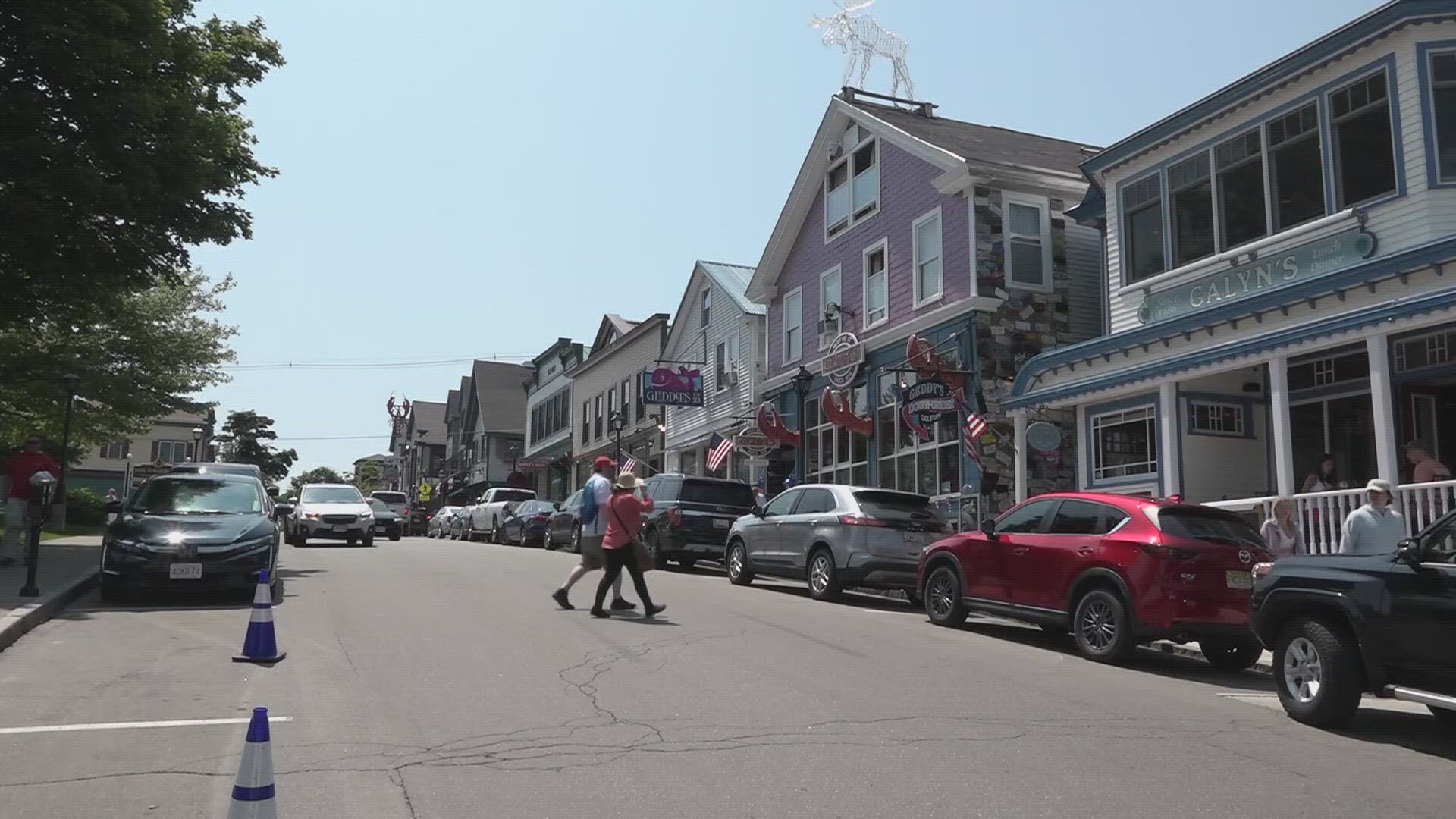BAR HARBOR, Maine — The trial is underway in federal court to decide whether the cap on the number of cruise ship passengers allowed in Bar Harbor—set to take effect next year—is unconstitutional.
A group of businesses, represented by the Association to Protect and Preserve Local Livelihoods (APPLL) filed a complaint against the town in December, one month after the voters approved the limit on visitors from cruises to 1,000 per day.
They argue the new ordinance violates the Supremacy Clause of the U.S. Constitution, which gives the federal government ultimate authority over state and local powers.
APPLL claims cruise ships are an example of interstate commerce, which is under the jurisdiction of the U.S. government, not the town of Bar Harbor.
But to many in favor of the cap, the town’s democratic decision comes first.
"You really need to listen to the residents of Bar Harbor who voted overwhelmingly to limit cruise ship visitation," Gary Friedmann, who sits on the Bar Harbor Town Council, said last week.
Friedmann and his allies believe town rule trumps federal oversight when it comes to cruise ship passengers. He adds that congestion caused by these visitors downtown is impacting the residents.
"There’s a community of people here who have to have a higher quality of life than I think what we’re seeing now," he said.
Legal arguments aside, many supporters of both the APPLL are worried about the day-to-day impact that a cap could have.
For business owners like Sue Stanley, more cruise ship passengers mean more customers to her boutique home goods shop near the town green.
"They’re very good patrons of my store… they contribute a lot to our economy fiscally, not just in what they spend here, but what goes to the town of Bar Harbor," Stanley said.
Alison Barnes, another business owner, says a sizable portion of her revenue comes from cruise ship passengers, and if the cap were to go through, she fears her business might not stay afloat.
"It’s a very real possibility that we and many other stores will have to close if this goes through," Barnes said.
But not everyone is sold on this argument. Charles Sidman is a Bar Harbor resident and a co-defendant in the suit. He joined the defense this year. In his view, business owners are exaggerating the impact of a cruise ship cap.
"Even if they disappeared entirely, and weren’t replaced, there’s no catastrophe about to happen," Sidman said from his home on Sunday.
As for concerns that the cap is an overstep by the town, he countered, "If the plaintiff's arguments here were to be accepted, no regulations, from town to state, to federal [levels] would be possible. Businesses would simply be able to do whatever they want whenever they want for their own financial purposes."
To some in favor of the cap, which passed with the support of 58 percent of voters last November, unfettered tourism would actually hurt the town in the long run because Bar Harbor will become a less appealing destination.
Melisa Rowland is a retired physician and year-round resident. In her mind, the influx of cruise ships, which has increased in recent years, will ultimately drive locals out.
"I think it's going to hollow the town out from what it's already become from having normal people who live here… I think it's going to make this place a place where you’ll only have tourists and only have people that are here making money in the summer," Rowland said.
The trial to determine the fate of Bar Harbor’s cruise cap is expected to take place throughout this week.

